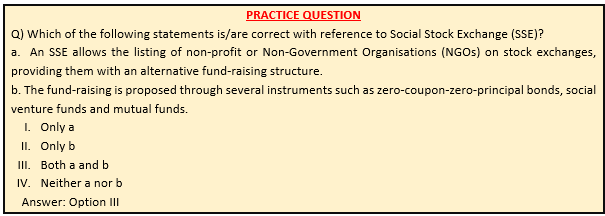Free Courses Sale ends Soon, Get It Now


Free Courses Sale ends Soon, Get It Now



Disclaimer: Copyright infringement not intended.
Context
What is an SSE?
What are the objectives of SSEs?
Example
What instruments will NPOs offer on SSEs?
Eligibility to participate in SSEs
How will SSEs work?
What are the tax benefits?
What is the size of the market?
Significance of SSEs


© 2024 iasgyan. All right reserved